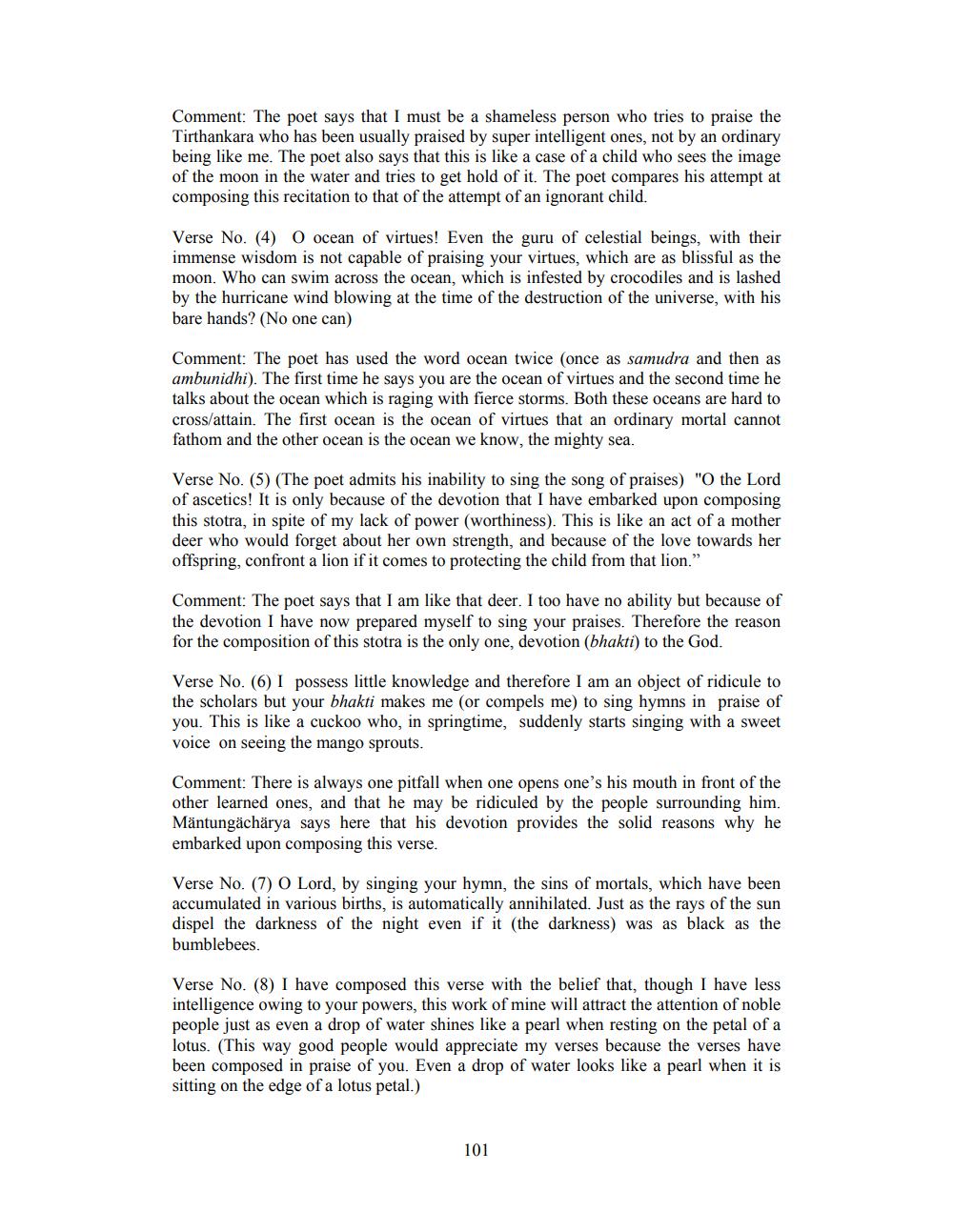________________
Comment: The poet says that I must be a shameless person who tries to praise the Tirthankara who has been usually praised by super intelligent ones, not by an ordinary being like me. The poet also says that this is like a case of a child who sees the image of the moon in the water and tries to get hold of it. The poet compares his attempt at composing this recitation to that of the attempt of an ignorant child.
Verse No. (4) O ocean of virtues! Even the guru of celestial beings, with their immense wisdom is not capable of praising your virtues, which are as blissful as the moon. Who can swim across the ocean, which is infested by crocodiles and is lashed by the hurricane wind blowing at the time of the destruction of the universe, with his bare hands? (No one can)
Comment: The poet has used the word ocean twice (once as samudra and then as ambunidhi). The first time he says you are the ocean of virtues and the second time he talks about the ocean which is raging with fierce storms. Both these oceans are hard to cross/attain. The first ocean is the ocean of virtues that an ordinary mortal cannot fathom and the other ocean is the ocean we know, the mighty sea.
Verse No. (5) (The poet admits his inability to sing the song of praises) "O the Lord of ascetics! It is only because of the devotion that I have embarked upon composing this stotra, in spite of my lack of power (worthiness). This is like an act of a mother deer who would forget about her own strength, and because of the love towards her offspring, confront a lion if it comes to protecting the child from that lion."
Comment: The poet says that I am like that deer. I too have no ability but because of the devotion I have now prepared myself to sing your praises. Therefore the reason for the composition of this stotra is the only one, devotion (bhakti) to the God.
Verse No. (6) I possess little knowledge and therefore I am an object of ridicule to the scholars but your bhakti makes me (or compels me) to sing hymns in praise of you. This is like a cuckoo who, in springtime, suddenly starts singing with a sweet voice on seeing the mango sprouts.
Comment: There is always one pitfall when one opens one's his mouth in front of the other learned ones, and that he may be ridiculed by the people surrounding him. Mäntungächärya says here that his devotion provides the solid reasons why he embarked upon composing this verse.
Verse No. (7) O Lord, by singing your hymn, the sins of mortals, which have been accumulated in various births, is automatically annihilated. Just as the rays of the sun dispel the darkness of the night even if it (the darkness) was as black as the bumblebees.
Verse No. (8) I have composed this verse with the belief that, though I have less intelligence owing to your powers, this work of mine will attract the attention of noble people just as even a drop of water shines like a pearl when resting on the petal of a lotus. (This way good people would appreciate my verses because the verses have been composed in praise of you. Even a drop of water looks like a pearl when it is sitting on the edge of a lotus petal.)
101




